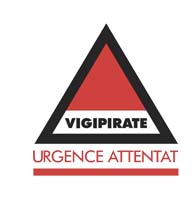Singing actors: Gainsbourg et cætera
IN DEFIANCE OF THE PROHIBITION that existed under Louis XIV to perform music and dance –this privilege being reserved to the Opera– ever since Molière’s comedy-ballets, the Théâtre-Français has constantly had its Troupe sing on stage whenever the Repertoire lends itself to such performances, if only for the couplets and songs that punctuate the plays of Beaumarchais, Marivaux or Musset. Down through its history, the Troupe has in fact included many actors who were initially trained in singing and music: Sallé (seventeenth century), Madame Thénard (eighteenth century), Mademoiselle Paradol, Marthe Brandès (nineteenth century), or Paul-Émile Deiber (twentieth century). Since 2007, the actors have regularly sung on musical radio broadcasts and since 2009 these performances have been extended at the Studio-Théâtre, transformed into a cabaret stage for the occasion. By turns they feature a thematic repertoire or are dedicated to famous performers with a love for the lyrical, such as Georges Brassens, Barbara or Boris Vian, alongside whom Serge Gainsbourg fully merits his place.
It was while attending a Vian concert in the 1950s that Serge Gainsbourg realised that he could “do something in this minor art”. Like Barbara, he went on to embrace the art of singing and composition in its broadest sense, mixing music with performance. Instead of using “real” singers, he liked to work with actresses, whom he pushed in directions which were new for them: “it created a magic that enveloped his own world”, notes former pensionnaire Isabelle Adjani. Conversely, in his rich career as a film music composer, screenwriter but also director and actor, actors did not hide their pride in being directed by this “poet of the camera” (Francis Huster) who knew them so well. In the many films he shot, he worked with several Comédiens-Français such as Francis Huster (whom he initially hired to dub an actor before casting him in Équateur), Roland Bertin (after shooting in Je t’aime moi non plus, Gainsbourg saw him on stage and offered him a major role in Charlotte For Ever), Georges Descrières (Voulez-vous danser avec moi), Robert Hirsch (Toutes folles de lui), Louis Seigner (Le Pacha), etc.
In 1962, Jean-Louis Barrault, artistic director of the Théâtre de l’Odéon at the time, appealed to Gainsbourg by giving him carte blanche to write a musical, an invitation the latter was obliged to decline and then refuse again a few years later, due to time constraints.
You’re a poet, I trust you. You can help me with the staging, if you want me there...
Jean-Louis Barrault à Serge Gainsbourg, 1968
Even ten years after seeing Jack Gelber’s The Connection performed by the Living Theatre with the saxophonist Jackie McLean (1962), Gainsbourg still considered the beauty of this play to be unparalleled. It inspired him to write the songs Black Trombone and Coco and Co.
This season at the Studio-Théâtre, it is the turn of songs to inspire the theatrical performance.
Afin de vous accueillir dans les meilleures conditions, nous sommes contraints de décaler l'horaire des représentations du dimanche des spectacles du Petit Saint-Martin (Les héros ne dorment jamais et Séisme) qui auront lieu à 17h30 (au lieu de 16h30).
La comédienne Anna Cervinka s’étant malheureusement blessée, nous sommes contraints d’annuler les représentations de Déshonorée.
Le spectacle sera créé la saison prochaine (2026-2027), les dates et lieu de représentation seront annoncés avec l’ensemble de notre programmation.
JANVIER - JUILLET 2026
La Salle Richelieu fermant pour travaux le 16 janvier, la Troupe se produira dès le 14 janvier dans 11 théâtres à Paris et à Nanterre.
Outre ses deux salles permanentes, le Théâtre du Vieux-Colombier et le Studio-Théâtre, elle aura pour point fixe le Théâtre de la Porte Saint-Martin et le Petit Saint-Martin et sera présente dans 9 théâtres partenaires : le Théâtre du Rond-Point, l’Odéon Théâtre de l’Europe, le Théâtre Montparnasse, le Théâtre Nanterre-Amandiers, le 13e art, La Villette-Grande Halle et le Théâtre du Châtelet.
Les 20 spectacles de cette saison hors les murs sont en vente.
Les visites historiques « Sur les pas de Molière » et « Le Paris de Molière » continuent et se déroulent à l’extérieur.
Départ Église Saint-Eustache
Consultez nos conditions générales de ventes pour les conditions d'accès.
